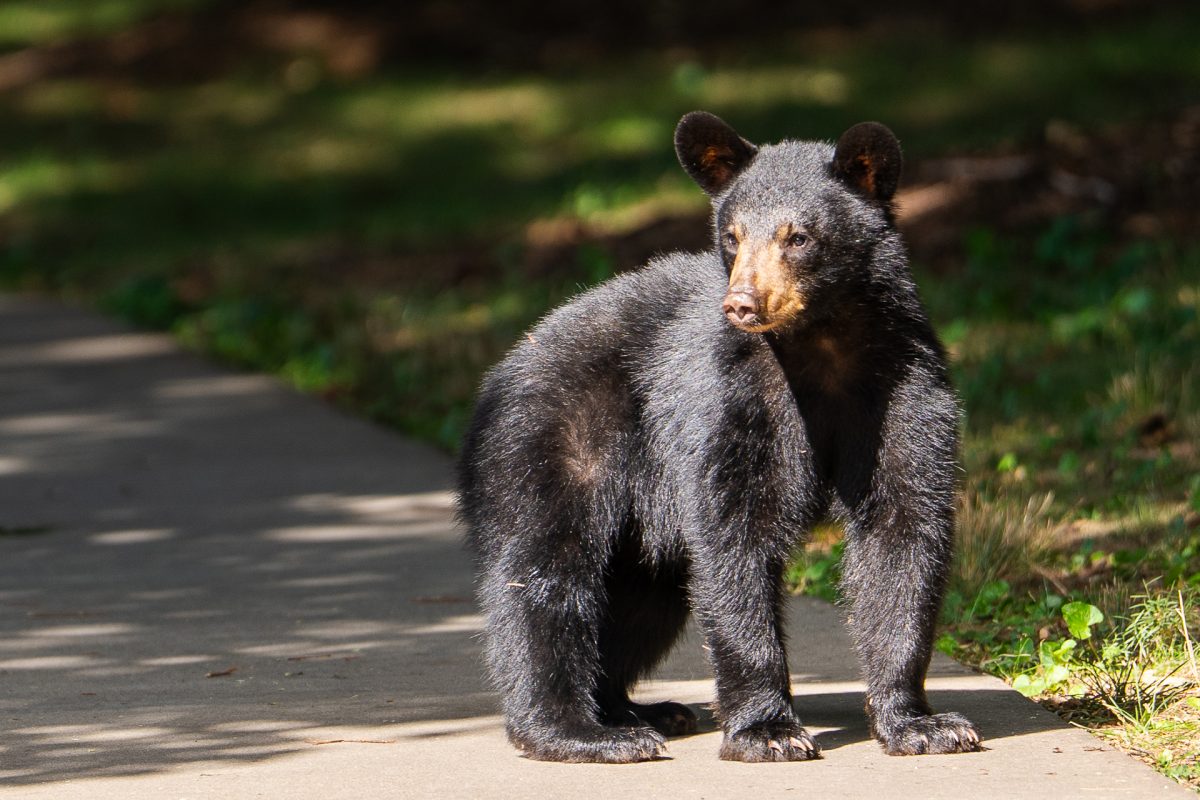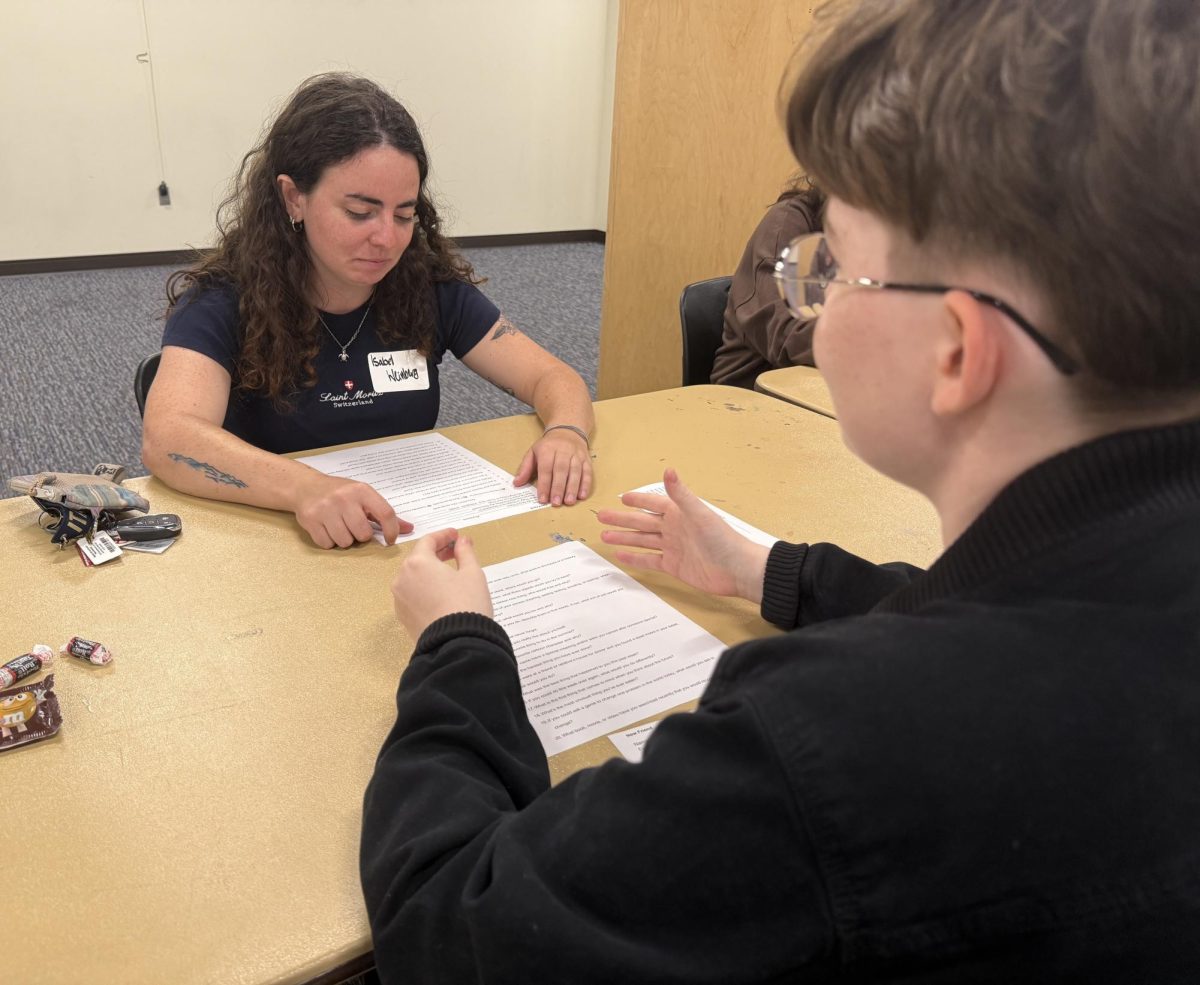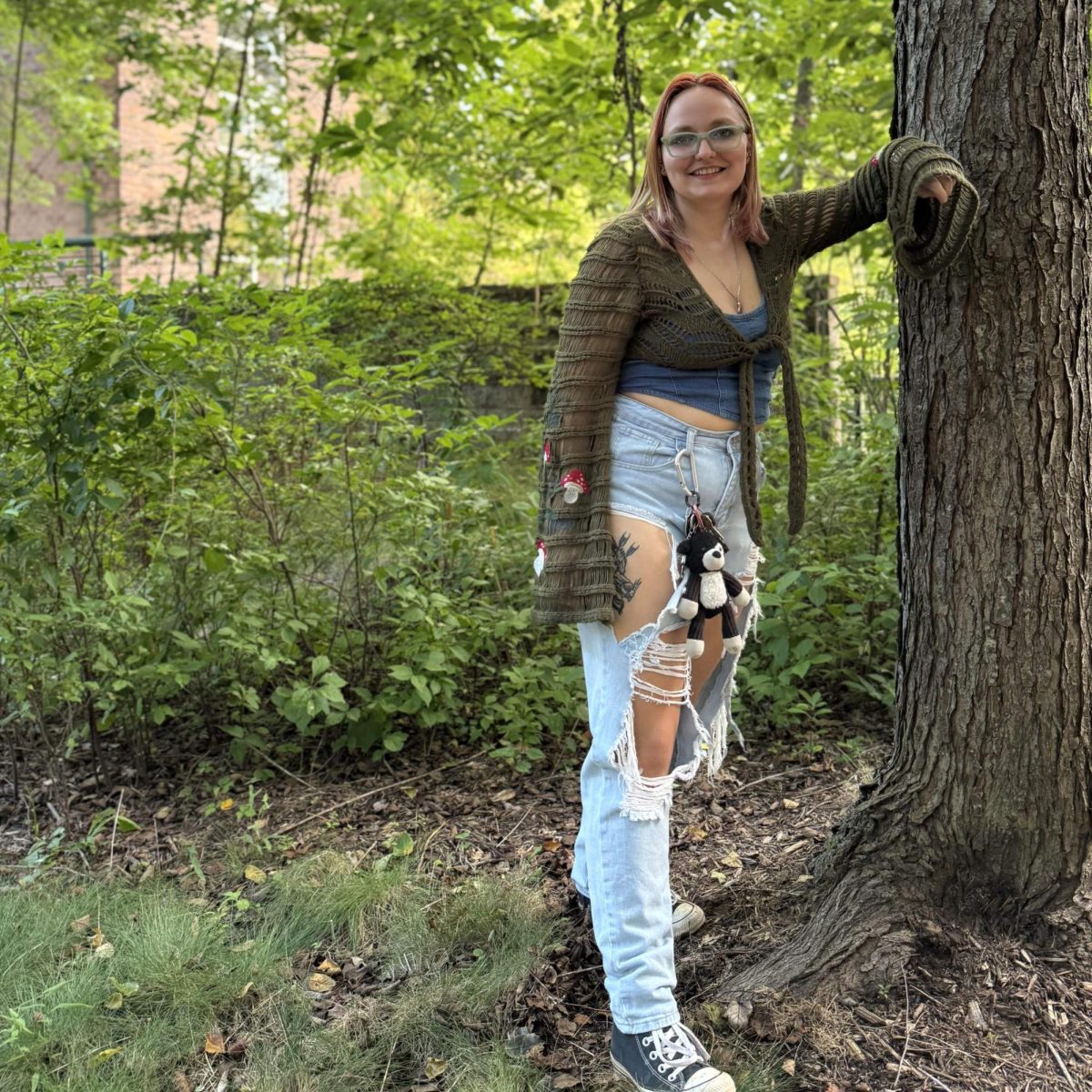Virginia Taylor
Arts & Features Staff Writer
[email protected]
As sunlight pours through the large windows in Rosetta’s, Roxie Topper takes another bite of her tofu and avocado sandwich among the chaos of the afternoon lunch rush. As a vegan student on campus, this is the usual lunchtime scene for Topper.
“I think that Rosetta’s is a really good addition to the campus, I feel like I would not survive here if it wasn’t here,” Topper said, dunking a

carrot stick into her vegan ranch.
Topper is among many vegan students on the UNC Asheville campus, but among a smaller percentage that still live on campus. For residential students, finding vegan dining options can be challenging. While UNCA does try to cater to its vegan students through options such as the satellite Rosetta’s Kitchen in the Sherrill Center, or vegan options labeled in Brown Dining Hall, finding a wide variety of dietary options can be difficult.
“Yes, in comparison to other colleges, I feel like we have way more options than any other campuses, but you know, it’s still fairly limited,” Topper said. “I think I would eat more at Brown if they had more whole fruits and vegetables. If they had that as an option besides just bananas and apples, like other things, I feel like I would eat there more and I wouldn’t be as opposed.”
For Carly Doobrow, a sophomore at UNCA, helping educate the people at Brown on what a healthy vegan diet consists of was one of her main goals through the vegan club she created and now runs on the UNCA campus.
“I actually had a lot of problems with the campus meal plan and one of my goals last semester was to speak with the people at Brown to further their understanding of what a vegan diet consists of and how to be proactive in providing nutritious foods as well as a variety of foods for the vegan students here,” Doobrow said. “I spoke with the sustainability coordinator and we sat down for like an hour and a half and I told them examples of foods that students enjoyed through data I had collected through a survey around campus. I gave them specific examples of things that they could implement or change and they were really interested in listening.”
For some of the residential vegans on campus, the ripple effects of this conversation becomes clearer.
“It’s tiny steps,” Topper said. “I remember last semester that new pizza place in the Grotto had vegan cheese but not vegan dough. I was really confused. But this year they do have vegan dough, they say the gluten free one is vegan too and so at least they finally knew that when I asked.”
For Doobrow, education about what it truly means to live a vegan lifestyle was a core part of beginning the vegan club on campus.
“It’s not only about diet, it’s about buying products that aren’t tested on animals or they don’t have animal products inside of them. Not buying leather things, not buying silk, not supporting companies that exploit their workers, things of that nature. Thinking about the impact that it has, not only on you but on everyone else and the planet, it goes beyond just you.”
While vegan college students face many challenges, from finding healthy vegan alternatives to higher prices for vegan options, Doobrow hopes that through conversation students can understand that there are healthy, cheap ways to be vegan.
“It’s more just like educating yourself on what is in stores and comparing prices at different establishments. It’s a lot of balancing because a lot of vegan substitutes like meat substitutes and dairy substitutes are where it gets expensive, but the cheapest foods available are vegan, like rice and beans,” Doobrow said. “Starting small is just as valid as going all the way, so I think it is pretty attainable for people to become vegan or practice a plant based lifestyle.”
The vegan club regularly holds events that promote living a sustainable, vegan lifestyle. From vegan potlucks to workshops on how to make vegan home products to visits to local grocery stores to examine cheaper vegan options, the club seeks to help students understand the accessibility of veganism even as a busy college student.
The main goal of the vegan club is to be a comfortable option for students of any diet curious about what being a vegan entails.
“The club is not just for vegans, we made it with a goal that other people with varying diets would attend,” Doobrow said. “That’s what we always say, all diets welcome.”
Many stereotypes still exist surrounding veganism, especially as more expensive vegan alternatives pop up in grocery stores like Whole Foods and Greenlife that are generally associated with higher prices. Veganism is often considered to not coexist peacefully with people’s cultural diets or socioeconomic status.
Coming from a Vietnamese family, UNCA student Yen Doan expressed their personal experience with these concepts.
“I understand some people can’t afford to live a lifestyle like that, like culture-wise it’s not for them. For me, I sometimes feel kind of weirdly disconnected with mine because of not eating meat, because meat is a big cultural thing for Vietnamese people,” Doan said. “I felt like my parents felt like I was dieting or something and sometimes they would kind of try to make me eat meat which sucked.”
A vegan for almost two years now, Doan said that the dynamic has changed within their family and that they have a better understanding of why Doan decided to become vegan.
“I don’t know if they know what it is to be vegan, but they know what it is to be vegetarian,” Doan said. “Now my mom will fry me some tofu or something, which is really nice.”
For Doan, becoming vegan stemmed a lot from learning the impacts that consuming animal products has on the environment. Doobrow mentioned the mistreatment of minorities and immigrants in large factories as a major reason in becoming vegan, while Topper said that health benefits were a factor in their diet. Regardless of reasons, coming from a place of caring rather than judgement was a resounding theme.
“If you want to become vegan, you shouldn’t become vegan to feel like you’re on some higher moral ground or whatever, you should do it because you care,” Doan said. “There is no ethical consumption under capitalism, but if you can do less harm, why not? I don’t want to discourage people by shaming them for not being vegan, but I feel like if they care enough about the planet they should take initiatives to treat it better.”
Doobrow said even practicing occasional plant based eating can make a big impact and help people understand what it would truly take to become vegan.
“It’s about taking little steps toward it. You don’t have to just go full-fledged vegan. I mean, just practicing meatless Mondays or just maybe not eating as much meat or as much dairy, that is something to be said in itself,” Doobrow said “Just starting small and if it’s not accessible for you at this point in time, weighing the pros and cons and just thinking about taking it step by step essentially.”
Ultimately, Doobrow simply hopes more people will begin to understand the lasting effects of being vegan and how they can make a difference.
“There’s just such bad that occurs in the world and it’s good to just be aware of that and try to practice a life where you are just causing less harm,” Doobrow said. “I think there’s something to be said about that.”
























